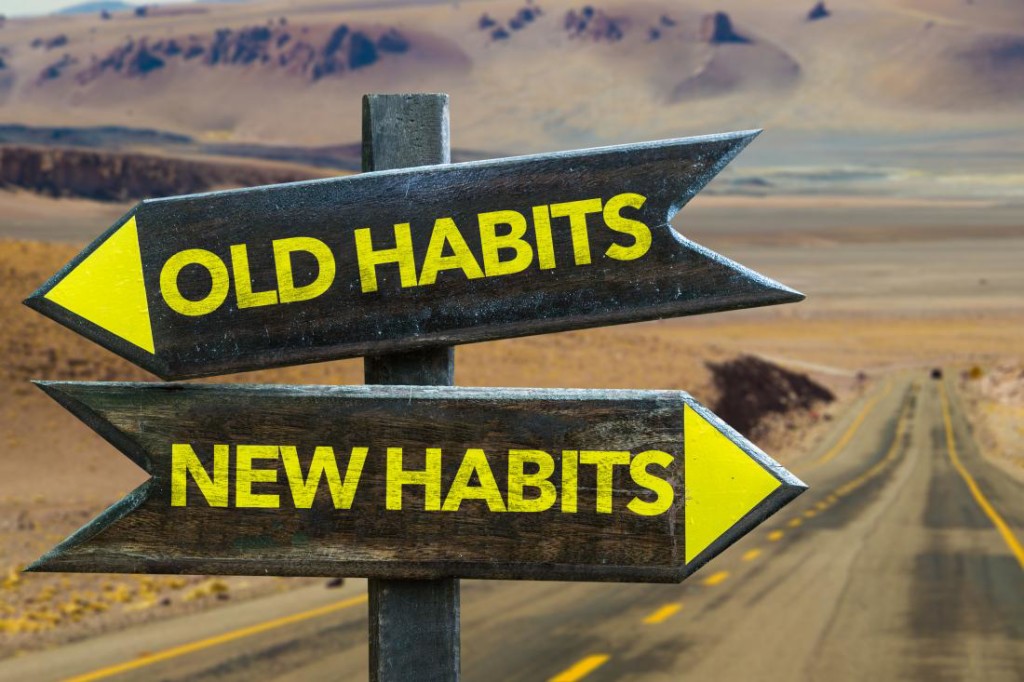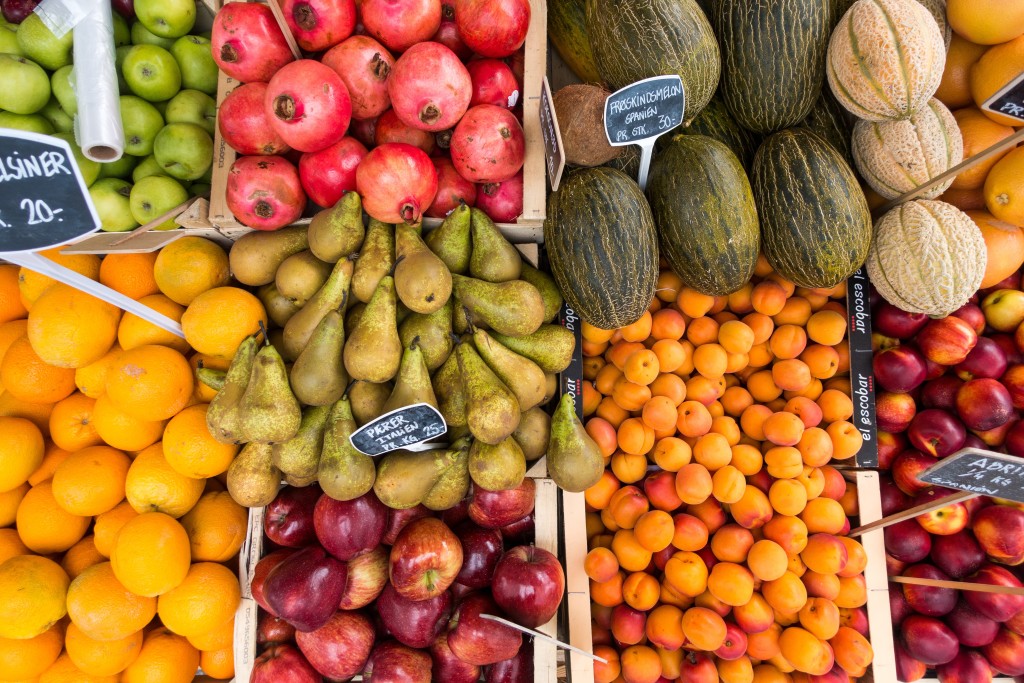Tags
acne aging anti-aging beauty detox diet exercise fasting healing health healthy lifestyle healthy living healthy recipes inspiration juicing Living la Vida Raw meditation mindfulness Move Your Body Natural Beauty natural cures Natural Cures natural remedies nutrition nutritionist parasites raw raw food Raw Food for Thought raw foods raw girl Raw News raw recipes Raw Spirit Recipes skin spirulina stress vegan vegan lifestyle vegan recipes vegetarian Veggie Love wellness yogaNewsletter Sign-up
Tag Archives: mindfulness
Free Course: Self-Care 101
It wasn’t until I was wheels up and exhaled that I realized how desperately I needed a break. Traveling for me is a form of self-care. It gives me oxygen. It ignites my curiosity again and allows me to explore my passion for all things healthy, fashion, and food in other cultures. For several years now I’ve gone without real good quality vacations while I was studying towards my Masters. Meaning I may be traveling but I am working at the same time. I’m determined and thankfully have more support to take a REAL moment to breathe again before reaching a breaking point. If you are in need of TLC, find a way to say YES to your self-care and do something for you that makes your heart sing today.
PS Before I left for vacay I created a self-paced FREE Self-Care 101 course that includes a lecture I gave a few months back. It ain’t self-care as you think of it – I address it from a holistic perspective. Feel free to sign up and share the love with someone you know needs it. Tchau for now! XO
Healthy Living in a Toxic World – Episode 7: Simple Ways to Relieve Stress
In this episode, I speak with Alice Maher, a certified holistic health counselor who has over twenty years of experience working with clients on stress management.
We discuss:
- Habits you can incorporate to reduce stress
- Diseases and conditions that can be bought on from excess stress
- What is stress?
- Common traits of people who are stressed out
- How Ayurveda can help manage your nutritional needs
- The connection between stress and diet
& More! Tune in and don’t forget to share!
Podcast: Play in new window | Download
New Podcast Alert!
Happy New Year 🙂 I’m really excited to hail back to my radio days and launch my podcast Healthy Living in a Toxic World, now available on iTunes, Google Play, and Spotify! In this podcast, I’ll be bringing you weekly conversations with health experts, longevity Sheroes and Heroes and insights on your mental, physical, and emotional health. Season one was recorded awhile back but has some serious GEMS! Guests include incredible experts like Dr. T. Colin Campbell author of The China Study, Dr. James Maas New York Times Bestselling author of Power Sleep, Victoria Moran @mainstreetvegan Author, podcaster and founder of Mainstreet Vegan Academy, Mimi Kirk former PETA’s Sexiest Vegetarian Over 70, Bernardo La Pallo who at the time of interview was 109 years old & more!
5 Steps to Break Unhealthy Habits
 Maintaining optimal health can seem daunting, but when you examine closely the lifestyles of some of the world’s healthiest people, it becomes evident that small daily rituals can make a very big difference. If you have the daily ritual of exercising vs. the daily ritual of binge eating while watching television, the trajectory of your wellness over your lifespan will be drastically different. Because habits can be formed unconsciously, it is important every now and then to examine the habits you engage in, and actively change any habits that are derailing your health. Below are some steps that you can engage in to help you break old habits that no longer serve you. -XO Raw Girl
Maintaining optimal health can seem daunting, but when you examine closely the lifestyles of some of the world’s healthiest people, it becomes evident that small daily rituals can make a very big difference. If you have the daily ritual of exercising vs. the daily ritual of binge eating while watching television, the trajectory of your wellness over your lifespan will be drastically different. Because habits can be formed unconsciously, it is important every now and then to examine the habits you engage in, and actively change any habits that are derailing your health. Below are some steps that you can engage in to help you break old habits that no longer serve you. -XO Raw Girl
Recognize that your actions are not supporting your overall health goals. The first step in making a change is to have the pain of where you are, surpass the pain or fear of making a change. If you are overweight, an addict, and can’t get up a flight of stairs without severe pain that feels like a heart attack, like the endurance athlete Rich Roll once was, you too have the opportunity for an epiphany. But what if things are okay but you just don’t feel your best? Your health challenge may not be as severe as his was, but even with smaller things it’s important to take notice. Maybe you no longer exercise, and although you have maintained your weight, your energy is much lower during the day. Or perhaps you have stopped meditating, and this has several encumbered how you deal with stress at work and at home. Whatever it is, hone in on it until you can make the firm decision to set a new habit.
Deal with the emotions that are keeping you tied to the behavior. My latest fascinating read is Dr. Joe Dispenza’s “Breaking the Habit of Being Yourself,” where he discusses how we can get addicted to emotions. Without knowing it, us humans are frequently switching into fight or flight mode when there is no real life threatening danger present. Whether it be a difficult boss, or angry commuter cutting us off in traffic, we tend to memorize emotional states and program them as default when a similar situation arises even if there is no real threat. Our emotions can also be scary to us, and in order to avoid feeling them we may use food, alcohol or other substances to avoid moving through the emotion. It’s important to become aware of what emotions are tied to your unhealthy habits and find healthy outlets for them to address the root cause. You may need to journal each night, get a boxing bag and throw some rounds, or find some other outlet for your feelings.
Practice Mindfulness to change your mindset. At this point, once you’ve recognized that your actions are out of alignment, and you are also addressing the emotions that keep you tied to the unwanted behavior, it is time to change your mind. Changing our mind is literally easier said than done, but thankfully, mindfulness techniques, especially meditation have been scientifically proven to build new neural pathways, reduce reactivity, stress, and help us engage with our environments in a new way. It only takes around 2-3 weeks of meditation to begin to see changes. After meditating for over 5 years and going through the process of falling off and getting back on it again, I’ve noticed changes even after a few days.
Find Healthy Substitutions. Some people believe in restriction to change habits, but that can backfire easily. Most of us when restricted can yo-yo back and go crazy on the exact behavior we said we would stop. Instead of working against your cravings or behavior, work with it by finding healthy substitutions. If you are trying to give up fast food, perhaps you start by making whole food versions of some of your favorite junk food and begin to train your palette to adjust to less refined sugar and salt. If you are working with a behavioral change sometimes substitutions aren’t relevant or are not enough. For instance giving up drinking alcohol or smoking cigarettes can be very challenging. Don’t be afraid to reach out for help or join a support group. When struggling with addiction, knowing that you are not alone and having accountability are both key to forming new habits and completing recovery.
Implement a new plan of action for a minimum of 21 Days. There is much debate about how long it takes to form a habit. Some say a minimum of 21 days, some say longer or shorter. At the end of the day you are going to need to give yourself at least a few weeks of repetitive action to adjust and form the new habit. You will know that the new habit is formed after you spend a consistent period following through and you are presented with the old option – food, behavior, etc. and the desire to indulge is gone. When you reach this stage, it’s important to acknowledge and celebrate yourself for the progress you’ve made.
____________________
Need support, a personalized meal plan, or check-in about your health goals? Click HERE to learn more about a one-on-one session with yours truly.
References:
Dispenza, J., & Amen, D. G. (2015). Breaking the habit of being yourself: How to lose your mind and create a new one. Carlsbad, CA: Hay House.
Daily On-The-Go Meditations with Shine!
For years I’ve been a mediation and mindfulness junkie. It’s safe to say that mindfulness techniques have changed my life and allowed me to deal with stress in a more productive manner. So when I was asked to be a part of offering amazing meditations to the world, of course I said “YES!” I’m ecstatic to announce I’ve been working with the lovely team at Shine Text to voice mindfulness meditations for their brand new app! Shine sends you free daily text messages with motivational quotes, positive affirmations and actions you can take every morning. Their text messages reach millions of users and now with their new app, they are offering mindfulness moments and challenges to help us refocus on the present moment and have the best day possible.
You can download their app now, and you’ll hear my voice on any of the FREE meditations, or in the “Get Fulfilled Challenge.” I also wrote an article for Shine, about my personal struggle with success addiction and the journey to fulfillment which you can read HERE.
-XO Raw Girl
Why Mindless Eating Begins in the Checkout Line
 In Mindless Eating Dr. Brian Wansink, discusses a research study published in the Journal of Market Research he conducted in which he evaluated the affect of using numbers in in-store promotions at grocery stores on buying by the average consumer. At first he thought that certain kinds of promotions might encourage more spending. He discovered after testing several options, that ANY sign at a grocery store with a number promotion regardless of the combination ie: 10 for $2 or 5 for $15, leads consumers to buy 30-100% more than they normally would. Funnily enough after publishing the study he shared that he himself was at a grocery store and was caught up in the same kind of advertising, even though he had knowledge and just published a research study on this topic. Why is this useful information for you to know? Well, you can become more aware of your choices while in the grocery store and avoid potential advertising triggers that cause you to forget all about your budget and add in extra snacks on the way out of the check out line. The other hard truth is that we all know it becomes much harder to not eat certain foods once we’ve purchased them and gotten ourselves home. So it’s always better to not purchase foods we consider junk or unhealthy so they aren’t around to tempt us. I’ve participated in mindless shopping at times, but it is usually when I do not go to the grocery store equipped with a list. So having a list and a general meal plan can help, keeping an eye out for signs or advertising that can affect your shopping habits, and shopping with an accountability partner who helps to stop the random purchases triggered by advertising.
In Mindless Eating Dr. Brian Wansink, discusses a research study published in the Journal of Market Research he conducted in which he evaluated the affect of using numbers in in-store promotions at grocery stores on buying by the average consumer. At first he thought that certain kinds of promotions might encourage more spending. He discovered after testing several options, that ANY sign at a grocery store with a number promotion regardless of the combination ie: 10 for $2 or 5 for $15, leads consumers to buy 30-100% more than they normally would. Funnily enough after publishing the study he shared that he himself was at a grocery store and was caught up in the same kind of advertising, even though he had knowledge and just published a research study on this topic. Why is this useful information for you to know? Well, you can become more aware of your choices while in the grocery store and avoid potential advertising triggers that cause you to forget all about your budget and add in extra snacks on the way out of the check out line. The other hard truth is that we all know it becomes much harder to not eat certain foods once we’ve purchased them and gotten ourselves home. So it’s always better to not purchase foods we consider junk or unhealthy so they aren’t around to tempt us. I’ve participated in mindless shopping at times, but it is usually when I do not go to the grocery store equipped with a list. So having a list and a general meal plan can help, keeping an eye out for signs or advertising that can affect your shopping habits, and shopping with an accountability partner who helps to stop the random purchases triggered by advertising.
Dr. Wansink also discusses his work with French research Pierre Chandon, on the average person’s ability to assess the amount of food they are eating. Apparently people eat more when they eat from large containers. They found that the smaller the meal, the more accurately people were able to guess the number of calories. However with larger meals people were off by 20-40%. When taking this study into the real world at fast food restaurants they determined that the more people eat, the less accurate they become at guessing the number of calories in their meals. If you are someone who chronically overeats, having a food journal and keeping an accurate assessment of the number of calories in your meals could help you be more mindful and may shock you! Plate size and portion size awareness is key as well; since we usually eat according the size of our plate it’s best to use smaller plates or take a smaller portion and seeing if that satisfies your hunger enough to stop eating. Moral of this long story is mindful eating doesn’t just start when we get home. It begins in the checkout line. So the next time you take a trip to the grocery store, take moment to prepare a list or get specific on your dietary needs before you go in so you stay focused on the healthy track. –Xo Raw Girl
5 Barriers to Mindful Eating
 Eat mindfully, is the art of being present with our meals, and eating with deep awareness of our bodies’ cravings, needs, and satiety levels. When we do not eat mindfully, we may find ourselves shoving meals down quickly while watching TV, multi-tasking during mealtime, or eating on-the-go. Barriers or hindrances to mindful eating include: thoughts, feelings, and sensations that hinder our capacity for mindfulness. They cause us to divert our attention, they weaken our wisdom, and distract us from noticing the present moment or noticing the feelings we are trying to avoid. The five classical hindrances or barriers are: 1) sensual desire, 2) aversion, 3) boredom, 4) restlessness, and 5) doubt. All of these can hijack our attention from mindful eating. Here’s a brief run-down of how! Sensual desire is being absorbed in enjoyable sensations without the recognition that they are fleeting. We keep going for more thinking we can maintain the feeling. The joy of fulfilling desire is not getting it, because that is not satiable. Aversion is ill will or punishing ourselves by abusing food. Doubt questions mindful eating and the ability to engage in it. Restlessness and boredom both involve misplacing our energy and directing it towards food to avoid feeling nothing or perhaps the frustration of boredom.
Eat mindfully, is the art of being present with our meals, and eating with deep awareness of our bodies’ cravings, needs, and satiety levels. When we do not eat mindfully, we may find ourselves shoving meals down quickly while watching TV, multi-tasking during mealtime, or eating on-the-go. Barriers or hindrances to mindful eating include: thoughts, feelings, and sensations that hinder our capacity for mindfulness. They cause us to divert our attention, they weaken our wisdom, and distract us from noticing the present moment or noticing the feelings we are trying to avoid. The five classical hindrances or barriers are: 1) sensual desire, 2) aversion, 3) boredom, 4) restlessness, and 5) doubt. All of these can hijack our attention from mindful eating. Here’s a brief run-down of how! Sensual desire is being absorbed in enjoyable sensations without the recognition that they are fleeting. We keep going for more thinking we can maintain the feeling. The joy of fulfilling desire is not getting it, because that is not satiable. Aversion is ill will or punishing ourselves by abusing food. Doubt questions mindful eating and the ability to engage in it. Restlessness and boredom both involve misplacing our energy and directing it towards food to avoid feeling nothing or perhaps the frustration of boredom.
Why are these habits or barriers important to recognize on an ongoing basis? If we remain aware of our hindrances we can prevent or avert hindrance attacks. By understanding our patterns we can learn to understand our behaviors in any given moment, and also teach ourselves to develop empathy for the choices we make. If we don’t take the time to recognize them, we will engage in behaviors unconsciously and be powerless to change them or choose differently.
To overcome the barrier of sensual desire, look at the objects of desire and determine what are the unrealistic expectations, are we seeing it clearly? How long will the pleasure actually last? Ensuring that we are appreciating and savoring the sensual desire while eating our food rather than mistreating it is key. We can also work to override the feeling of desire by practicing contentment, until we have trained ourselves to easily disengage from the object of desire. To deal with doubt, you could chat with a mindful eating teacher or coach and talk through the doubts you have. Our just journaling your thoughts may be effective enough. Acknowledgment will give the doubts less power. With aversion we can take time to get to the root of what we are punishing ourselves for. If we unearth the shame, guilt, or upset and deal with it head on, we will be less likely to use food as aversion. Mindfulness activities or meditations can help us stay rooted in the present moment when struggling with boredom and restlessness. Rather than go on autopilot and begin eating to cope, we can train ourselves to ask questions before we chose to eat to determine if we are just killing time or avoiding feelings.
It’s important that we do not beat up on ourselves for not achieving the elusive title of “mindful eater.” Part of cheering ourselves on is recognition that it’s all a process that requires positive choices day by day. We have to realize that slip-ups are not wrong, they are just a part of the ebb and flow of life. We can get excited when we start to notice behavioral changes or landmarks that we achieve. Perhaps we stop rushing and eating on the go, or we learn to put away our phones during dinner. Celebrating the small victories can go a long way to helping us stay on the path. –Xo Raw Girl
Have you checked out my new online classes yet? In my new course, Staying Ageless 30+ you will learn about Diet Basics, Lifestyle Factors, and elements of Longevity that promote an ageless way of life. Over the course of three modules you learn what to eliminate from your diet to stay ageless, how to ensure your body is receiving adequate nutrition, powerful detox rituals you can incorporate to increase your longevity, beauty remedies that will leave you glowing, and how to exercise effectively and get results. In addition you will learn health lessons directly from renowned longevity and health experts that will equip you to transform your lifestyle. You can still enroll! Check out the class HERE to preview the curriculum our save your seat! -Xo
4 Mindfulness Techniques That Can Reduce Binge Eating
- Daily Mindfulness Meditation Practice. Finding a meditation practice that works for you and practicing consistently can greatly reduce your need to binge. Why meditation? Studies on binge eaters have shown that meditation and mindfulness exercises as a whole, had a positive effect on bingeing and also may help us get more present with our emotions. A simple 5 minute meditation is enough to start, and you can increase as you feel more comfortable.
- Journaling. As a survivor of binge eating disorder, I am very aware that emotions play a HUGE role in bingeing. In fact, the food is usually a way to stop us from experiencing negative emotions like stress or sadness. When you journal around your feelings in social and solitary situations that cause bingeing, you can discover what your triggers are. Once you know your triggers you can work alone or with a practitioner to find interventions to use to stop the cycle of bingeing.
- Stopping in Between Bites: One to two times per week try eating a meal and stopping in between bites. I know it sounds a little crazy but the pause in between bites in which you must put your fork down, causes you to savor your food and have a better handle on your satiety or hunger level. Most of us shove food down our throats quickly and discover minutes in that we are overstuffed. Slowing way down can be maddening at first, but for someone who is used to eating large amounts of food very quickly like most do who binge, it will be a great exercise in re-training you to hear your bodies’ cues that you are full. You can also journal about your experiences.
- No Eating While Upset. If you are a binge eater it’s important to start allowing yourself to feel the feelings that come up before a binge. The act of bingeing numbs the emotions and replaces with a temporary feel good from the food, and then bad feelings of shame and guilt come after so it becomes a vicious cycle. It may be extremely difficult at first, but if you can work on turning to journaling, calling a friend, or other activities that allow you to express how you arefeeling, a healthier cycle and way of dealing with her emotions will replace the bingeing habit. -Xo Raw Girl
References:
Niacin. (2017). AHFS Consumer Medication Information, 1.
Prousky, J. E. (2010). Vitamin B3 for Depression: Case Report and Review of the Literature. Journal Of Orthomolecular Medicine, 25(3), 137-147.
Have you checked out my new online classes yet? In my new course, Staying Ageless 30+ you will learn about Diet Basics, Lifestyle Factors, and elements of Longevity that promote an ageless way of life. Over the course of three modules you learn what to eliminate from your diet to stay ageless, how to ensure your body is receiving adequate nutrition, powerful detox rituals you can incorporate to increase your longevity, beauty remedies that will leave you glowing, and how to exercise effectively and get results. In addition you will learn health lessons directly from renowned longevity and health experts that will equip you to transform your lifestyle. You can still enroll! Check out the class HERE to preview the curriculum our save your seat! -Xo
Santosha: Practicing The Art of Contentment
 Santosha (skt. संतोष saṃtoṣa, santōṣḥ) literally means “contentment, satisfaction.” Other meanings include: acceptance of one’s circumstances, being comfortable with what is. Considering the popular tune “I can’t get no satisfaction,” most of us could use a little santosha in our lives. Shout out to my instructor Yoga Sihnuu for teaching me about this ethical concept in Indian philosophy, particularly Yoga, and is included as one of the Niyamas by Patanjali. To possess or achieve santosha means you are in a place where you do not crave or desire. Sounds cray cray right? We all know what it is like to crave or want something so badly, and what happens when we get it? We are temporarily blissed out, (some people for a matter of minutes), and then we go off again craving something else.
Santosha (skt. संतोष saṃtoṣa, santōṣḥ) literally means “contentment, satisfaction.” Other meanings include: acceptance of one’s circumstances, being comfortable with what is. Considering the popular tune “I can’t get no satisfaction,” most of us could use a little santosha in our lives. Shout out to my instructor Yoga Sihnuu for teaching me about this ethical concept in Indian philosophy, particularly Yoga, and is included as one of the Niyamas by Patanjali. To possess or achieve santosha means you are in a place where you do not crave or desire. Sounds cray cray right? We all know what it is like to crave or want something so badly, and what happens when we get it? We are temporarily blissed out, (some people for a matter of minutes), and then we go off again craving something else.
In my recent study of mindful eating, we discussed “Craving at the end of Craving,” an audio made by the Center for Mindful Eating. In the audio, the practitioner describes this cycle of craving, and then craving more. The only way to break the cycle, which is natural to us as humans, is to develop the ability to sit with your cravings and not act on them. To realize that if we do not get what we are craving we can still be happy, or content. Why is santosha important for our lives right now? These days we have waytoo much in popular culture that promotes the opposite of santosha; we want what the Kardashians have, and with one scroll through our Facebook or Instagram feed we may be left feeling our life as it is, isn’t as fabulous as we thought it was. In my interviews with amazing people who have achieved extraordinary longevity, I have noticed that all of them seemed to have achieved santosha in some way or another. They practice gratitude, mindfulness, and stress the importance of a positive outlook. Contentment can keep us from depression, stress, and foster a deeper sense of peace.
Assess your life today. How can you practice santosha or contentment? What can you be grateful for today? -Xo Raw Girl
**********************************










